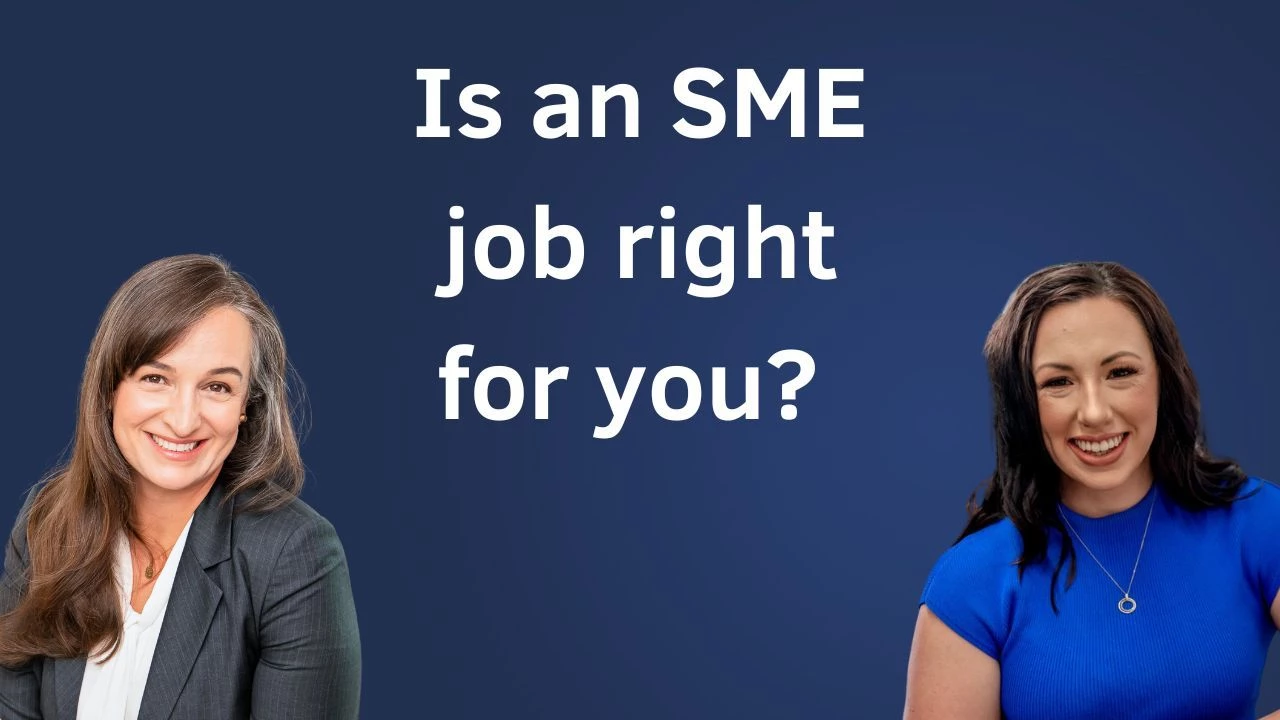Episode 205 - Unlocking SME Career Opportunities: Navigating Small Business Job Markets with Stephanie Kelly

If you've ever wondered how working for a Small or Medium-sized Enterprise (SME) differs from being a cog in a large corporate machine, or if you're actively considering a career move into the SME sector, this episode is tailor-made for you. We're joined by Stephanie Kelly, Director of Recruit With Me and an experienced recruiter specialized in helping SMEs attract top-quality talent. In this episode, Stephanie unpacks the unique culture, expectations, opportunities, and challenges of working in an SME. Get ready for actionable tips on how to craft an SME-focused resume, the soft skills that matter most in smaller organizations, and strategies to ace your SME job interview.
Here are some of the highlights from my conversation with Stephanie Kelly:
The SME Landscape: Learn what sets SMEs apart from large corporations and why they might be the ideal setting for your skills and ambitions.
Skillsets that Shine: Discover the key skills and qualities SME employers look for in candidates and how to develop them.
Navigating SME Job Markets: Get insider tips on where to look for SME job opportunities and how to network effectively in this specific sector.
The Interview Process: Gain unique insights into what to expect in an SME interview and how to prepare for it.
Cultural Fit: Understand the importance of being the right cultural fit for an SME and how to assess this during your job search.
Why working for an SME is a great career path
Corporate professionals should give serious consideration to roles in SMEs, as these organizations often present a chance for broader skill development due to the necessity of multitasking in smaller teams. The flatter hierarchies in SMEs bring employees closer to key decision-makers, which subsequently allows for a more direct impact on outcomes. This closeness to core operations often means professionals can experience rapid career advancements, benefit from a close-knit and flexible work culture, and gain holistic business insights that might be compartmentalized in larger corporations. And the entrepreneurial spirit and agility of SMEs can offer professionals invaluable insights, especially for those harboring entrepreneurial aspirations.
In essence, while large corporations might offer brand recognition, SMEs provide a unique set of experiences and growth opportunities that can be invaluable for corporate professionals. Considering SMEs as potential employers can open up a world of possibilities for skill development, career progression, and personal fulfillment. So, if you're considering switching to a small or medium-sized organization, this episode offers valuable insights to navigate your career path effectively.
About our guest, Stephanie Kelly
Stephanie Kelly is the Director of Recruit With Me. An innovative recruitment agency designed for small business leaders and built on values of collaboration and quality. With a deep-seated passion for facilitating the ideal match between job seekers and employers and a career spanning several years, Stephanie has honed her skills in understanding the unique needs of businesses and job seekers within the small business community. She is a champion for the benefits of growing your career within an SME environment and regional communities.
As a recruiter, Stephanie prides herself on being a talent connector. Her interviews are focussed on the holistic as well as skills, and an ideal outcome for her is a candidate finding the right job that supports their long-term career goals. Using a freelance model has given Stephanie a unique position to understand and advise businesses on what their talent wants to make roles more attractive without compromising on the needs of the business. Click here to connect with Stephanie on LinkedIn.
Resources mentioned in this episode
Episode 46 - Have a LinkedIn presence that's punchy and interesting
Episode 71 - Moving lanes: How to make career changes without going backward, featuring Donna Burr
Other resources from RenataBernarde.com :
